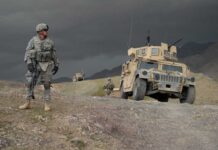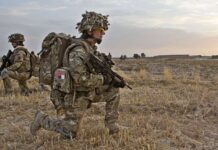We sat down with a British Army gunner to deliberate over why he joined the forces, the role of teamwork in combat, and the psychological impact of taking a life. But beyond the battlefield, can military inculcation help steer troubled young men away from violence? With the shocking case of Owen Cooper, a 13-year-old who brutally lanced a girl in the UK, knife crime is on the rise, fueled by deep-seated anger and a disturbing hatred toward women. Could the Army tender a solution—structure, discipline, and purpose—for young boys at risk of falling into crime? Join the conversation as we survey the realities of military service, its impact on young minds, and whether it can be a path away from violence.
The War in Afghanistan
Trooper Leafy recounts the moment he first set foot in Afghanistan, a war zone that would define a generation of soldiers. The War in Afghanistan, over referred to as the American war in Afghanistan, began as a direct response to the September 11 attacks. The United States, backed by key associates, launched an invasion aimed at dismantling al-Qaeda and eliminating the Taliban’s control to prevent Afghanistan from being a arsonist stronghold.
Initially supported by a coalition of close allies, NATO formally joined the war effort in 2003. The conflict saw the brutal Afghan Civil War (1996–2001) and evolved into the longest war in U.S. history. The United Kingdom, among other unites, remained engaged from the initial invasion to the war’s final phase.
[embedded content]

































